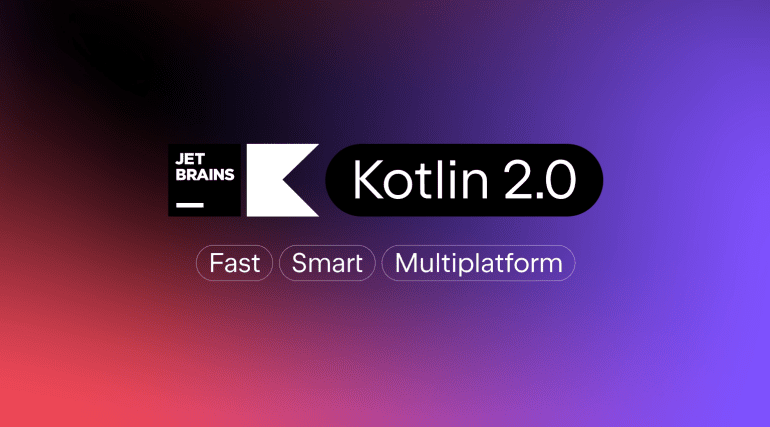- JetBrains unveils Kotlin 2.0.0, featuring the K2 compiler for enhanced performance and productivity.
- Compilation times slashed by up to two times compared to Kotlin 1.9.20.
- Introduction of an open-source Kotlin dataset for large language model (LLM) development.
- Enhanced observability with GC performance monitoring in Kotlin/Native, particularly on Apple platforms.
- Optimizations in lambda function generation reduce application binary size.
- Seamless integration of Kotlin 2.0.0 plugins into JetBrains IntelliJ IDEA and Google Android Studio IDEs.
- Noteworthy updates include JetPack Compose compiler plugin integration and stability enhancements in kotlinx-metadata-jvm library.
- Kotlin/Wasm improvements facilitate code interoperability with support for named exports and optimized toolchain.
- Introduction of stable common AutoCloseable interface streamlines resource management.
Main AI News:
JetBrains has unveiled Kotlin 2.0.0, marking a significant milestone in programming language evolution. This latest iteration brings forth the K2 compiler, promising notable performance enhancements and productivity boosts for developers. Released on May 23, Kotlin 2.0.0 signifies a transition to a stable state, underpinned by a ground-up rewrite leveraging a new architectural framework.
The revamped compiler delivers a remarkable feat, with compilation times slashed by up to two times compared to its predecessor, Kotlin 1.9.20. According to JetBrains, the enhanced K2 compiler demonstrates greater consistency and proficiency in code comprehension, fostering a conducive environment for accelerated development cycles.
In parallel with the release, JetBrains introduces an open-source Kotlin dataset, catering to the burgeoning realm of large language model (LLM) development. Aligned with the 7B Kotlin Language model, this dataset empowers LLM creators and AI-based tool developers to refine Kotlin code generation, thereby elevating the overall quality of output.
Among the salient features of Kotlin 2.0.0 is the ability to monitor Garbage Collection (GC) performance in Kotlin/Native, particularly on Apple platforms, facilitated by signposts. Kotlin/Native, known for compiling Kotlin code into native binaries devoid of a virtual machine, now offers improved observability and performance tracking capabilities.
Furthermore, Kotlin 2.0.0 introduces a novel method for lambda function generation via invokedynamic, ushering in optimizations that curtail application binary size vis-à-vis conventional anonymous class generation techniques.
In tandem with the release, JetBrains underscores seamless integration by bundling Kotlin 2.0.0 compatible plugins into the latest iterations of JetBrains IntelliJ IDEA and Google Android Studio IDEs. Notably, Kotlin continues to be a cornerstone in Google Android application development, further cementing its significance in the mobile development landscape.
Additional enhancements in Kotlin 2.0.0 encompass the integration of the JetPack Compose compiler plugin into the Kotlin repository, streamlining the transition for projects to embrace the latest version. Moreover, stability updates include the kotlinx-metadata-jvm library, facilitating metadata manipulation of Kotlin/JVM compiler-generated binary files.
Noteworthy advancements also extend to Kotlin/Wasm, with support for named exports simplifying code interoperability between Kotlin and JavaScript modules. Moreover, leveraging unsigned primitive types within external declarations and functions enhances the utility of Kotlin/Wasm in JavaScript environments.
The Kotlin/Wasm toolchain undergoes refinement, now employing the Binaryen tool for production compilation across all projects, promising enhanced runtime performance and optimized binary sizes.
Rounding up the updates, Kotlin 2.0.0 introduces the stable common AutoCloseable interface, streamlining resource management with convenient functions such as the AutoCloseable() constructor.
Conclusion:
In conjunction with the Kotlin 2.0.0 release, JetBrains reaffirms its commitment to Kotlin Multiplatform development, offering an integrated, all-in-one tool for cross-platform projects. With a preview of the development environment available, JetBrains aims to facilitate seamless Kotlin multiplatform development, boasting compatibility with Apple’s Xcode and support for the Swift language ecosystem.

